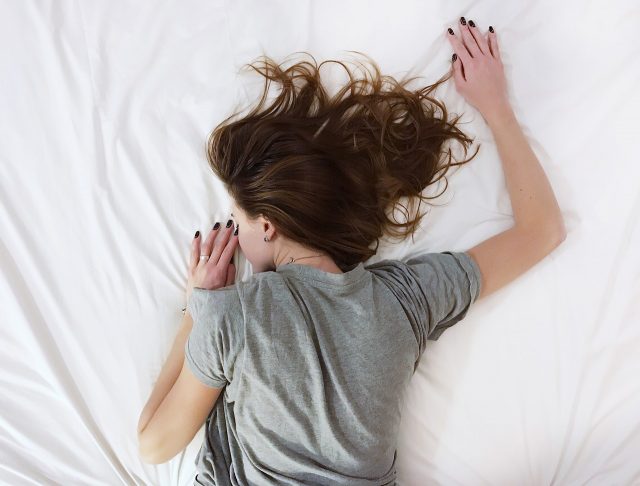When you plop down on your bed at night, you should have the freedom to relax and rejuvenate. Unfortunately for millions of Americans, this isn’t possible. Painful ear conditions, in particular, cause many to toss, turn, and count down the hours until the morning. But what if you don’t have to live like this?

Common Ear-Related Conditions That Make Sleeping Painful
When it comes to sleep issues, people often think about back and neck pain, sleep apnea, snoring, restless leg syndrome, night terrors, insomnia, and other common problems that cause people to experience interrupted sleep. But ear pain is something that’s just as common, yet doesn’t get discussed nearly enough. There are several painful ear conditions that make sleeping uncomfortable or challenging, including:
- CNH. One of the more common ear-related problems is a condition known as Chondrodermatitis Nodularis Helicis (CNH). This is essentially a sore on the outer part of the ear. It becomes painful when pressure is put on the cartilage, which leads to pain, irritation, and/or redness of the skin that overlays the inflamed cartilage. CNH is most common in middle-aged and elderly people, but it can be present in people of all ages.
- TMJ disorder. Everyone has a temporomandibular joint (TMJ). It’s the joint that acts as a sliding hinge that connects the jaw to the skull. For some people with TMJ disorder, this joint pops and/or becomes painful. It can cause pain in the surrounding muscles and nerves. TMJ disorders are often at their worse during sleep, when the jaw can become extraordinarily tender (or even locked in place).
- Ear infections. While less chronic than the other two conditions mentioned on this list, ear infections can be painful, nonetheless. Some people are more prone to ear infections than others, which can make sleeping difficult.
These are three of the most common ear-related conditions that make sleeping painful, but there are certainly others. And the sooner you confront your problem, the better you’ll sleep at night.
4 Tips for Preventing Ear Pain While Sleeping
Ear pain while sleeping is surprisingly common, but it doesn’t have to ruin your sleep. Here are some suggestions that many have found helpful:
- Practice a Smart Pre-Bedtime Routine (All Conditions)
Whether you suffer from ear, neck, back pain, or some other condition that make sleeping difficult or uncomfortable, you can do yourself a favor by practicing a smart pre-bedtime routine that sets you up for a quality night of sleep. As a part of your routine, limit food and alcohol intake in the two hours prior to bed. You should also reduce your exposure to blue light from digital screens and avoid doing anything that may cause stress and anxiety (such as work-related tasks).
- Try a Specialized Pillow (CNH and TMJ)
Many painful ear conditions are aggravated at night because of the excessive pressure that pillows put on the ear. This is especially true for people who like to sleep on their sides.
If you suffer from CNH or TMJ, you may find a specialized side sleeper pillow to be helpful. This pillow features ear cutouts (or ear holes) that are designed to remove pressure and contact from the ear to provide a comfortable night’s sleep.
- Wear a Guard (TMJ)
For people who suffer from TMJ disorder, the orientation of the body during sleep – combined with the pressure on the ear region – often causes pain, aches, and muscle tension. And as the jaw relaxes, it’s common for the TMJ joint to temporarily lock in place. A TMJ mouth guard may create enough separation in the joint to prevent these symptoms.
- Stay Elevated (Ear infections and TMJ)
If you suffer from ear infections or TMJ disorder, you may find it helpful to keep your head slightly elevated at night. This removes some of the pressure from the ear and reduces pain. (For TMJ sufferers, it also reduces the likelihood of lockjaw.)
Sleep Easier at Night
If you suffer from some form of chronic or acute ear pain that makes it difficult to fall asleep comfortably and/or sty asleep, then it’s important that you take action. There are plenty of solutions, habits, and treatments, and you may be able to find one that works for you.

